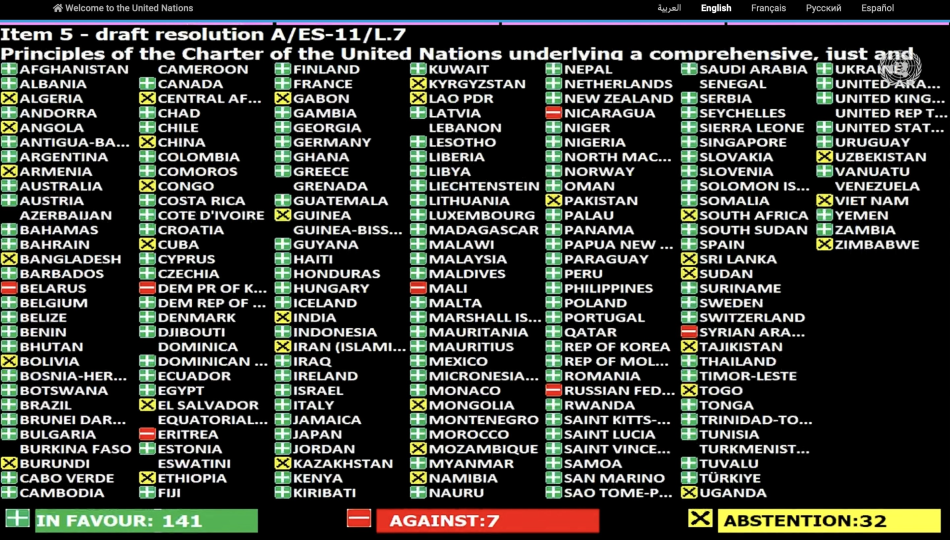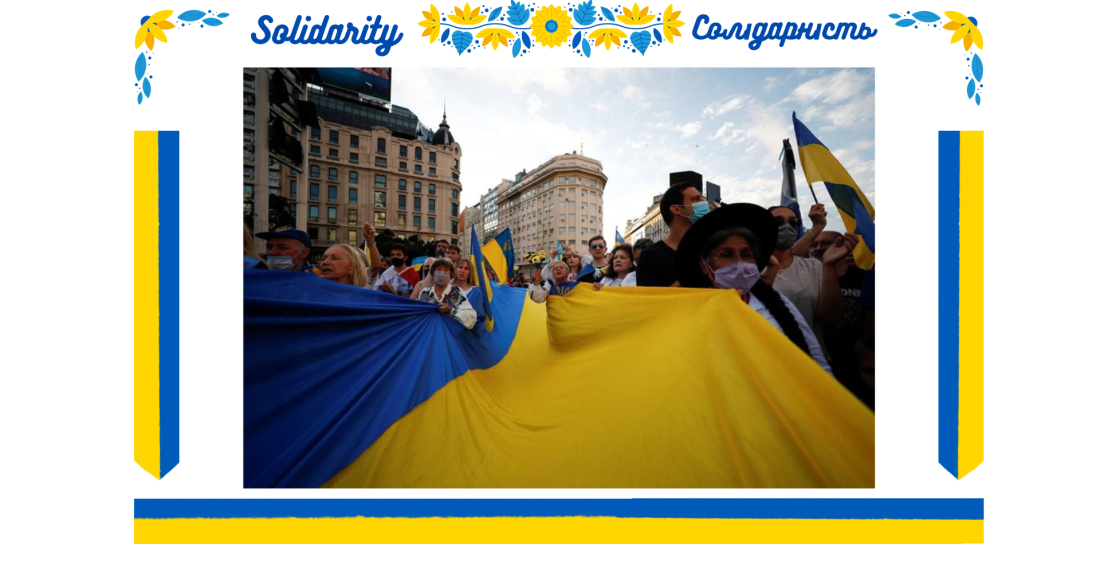This week marks the first anniversary of the Russian invasion of Ukraine. commonspace.eu will mark this week as one of solidarity with Ukraine and its people, and is running a number of articles and news items related to the conflict and its impact on the rest of Europe and the world.
One year has passed since Vladimir Putin’s Russia attacked Ukraine, plunging Europe into a war that has already claimed the lives of tens of thousands, and devastated a whole country.
Putin expected Ukraine to fall into his lap within hours. It didn’t. It resisted heroically. He also expected Europe, the United States and the rest of the international community to give a muddled response, and for things to be back to business as usual within weeks. It did not happen. The response of Europe, the United States and similarly minded countries was fast, resolute and robust.
Having grossly miscalculated, Putin had two choices: to admit his mistake and recalibrate, or, to persist, and to keep digging despite the fact that he was clearly in a hole. Most countries have internal corrective systems that in such situations keep leaders in check. In Russia no such systems exist. So Putin keeps digging himself into a hole by threatening to escalate.
Europe, the US, and similarly minded countries took a stand
What has been clear from day one, is that this is not simply Ukraine’s war. Countries can have disputes, and sometimes they also go to war with each other. Usually the world stands by and tries to bring the belligerents to the negotiating table and to restore peace.
The reason why in this case this did not happen, and why Europe, the US and similarly minded countries decided to take a side in the war, is that Putin’s aggression against Ukraine is part of a grand design that in essence rejects the international order as it emerged after the end of the Cold War, rejects the principle of a rules-based international system, and threatens all countries in Russia’s neighbourhood.
It is this realisation that made countries put aside their differences and unite in resisting the Russian aggression; it is why countries that had for decades, if not centuries, taken pride in their neutrality, such as Sweden and Finland, decided that this was no time to be a bystander.
So the full-scale war that this week enters its second year is our war. That should not be said lightly. Wars are terrible things that cause suffering and destruction on a massive scale. They damage whole nations, sometimes irreparably. Europe did not choose this war. It was Mr Putin that launched his aggression one year ago, trying to wipe away Ukraine from the face of the earth. His terrifying speech three days before he invaded, full of cynicism and historical inaccuracies, sent a chill across the world.
Europe is no stranger to war. The two most devastating wars in memory were fought mainly in Europe in the first half of the 20th century. Yet Europeans in the last decades had experienced peace, had benefited from this peace, and had come to value peace highly. So going to war is a heavy, difficult decision. In this war so far the fighting is taking place on the territory of Ukraine, essentially between Russians and Ukrainians.
The suffering continues, crimes should be punished, but things will get worse before they get better
But, short of sending soldiers to fight, Europe, the US and similarly minded countries are at war with Russia for all other intents and purposes. The economic sanctions against Russia are unprecedented. The provisions of arms and military supplies to Ukraine are on a scale not seen since WWII, and support for the invaded country in other spheres: political, financial, humanitarian etc. is also on a massive scale.
Such a war can, at least in theory, last for years. Neither side is on its knees. But the suffering continues.
Whilst the world is aware of the suffering of the Ukrainian people, they are not aware enough. For its valid reasons, the Ukrainian leadership has adopted a “macho” approach in its messaging on the war. This sometimes distorts the heavy price that Ukrainians are paying. Millions displaced; whole cities wiped out; civilians and military alike subject to torture and other unacceptable forms of violence. Calls for these crimes to be punished should not go unheeded.
Support for Ukraine must continue until the war is won and justice is restored. But there needs to be an awareness at both an official level and at the level of broader public opinion in Europe and the west, that things are likely to get worse before they get better.
Not our war, G’uv!
On the eve of the first anniversary of the Russian invasion, the United Nations General Assembly debated the current situation and adopted a resolution condemning Russia and calling on it to withdraw its troops from Ukraine.
Since Putin’s invasion was a blatant violation of the UN Charter, it was the least the UN General Assembly could have done. But still, of the 193 countries who are members of the UN, 141 voted for the resolution. It is true that only six “usual suspects” backed Russia. But how about the other 45 who abstained (32) or were absent (13)?
They included seven former Soviet republics in Russia’s neighbourhood. Their position is perhaps understandable. China has been playing an ambivalent role and her abstention was expected. But how about India and South Africa – these bulwarks of the rights of small nations? Do they not have any feelings for a country being trampled by its neighbour?

The notion in parts of the global south that “this is not our war” is greatly misjudged. If Ukraine is defeated no country in the world will be able to feel safe any more. More needs to be done to secure the support of the global south for Ukraine and its cause, and as the war gets more bitter, this becomes even more important.
Isolating Putin’s Russia is the only way to end this war quickly
The war in Europe unleashed by Vladimir Putin on 24 February 2022 has resulted in suffering on Ukraine and its people not seen since WWII. This evil must be exposed. Support and solidarity with the Ukrainian people must remain resolute. Europe and the west must be ready for more provocations from the Kremlin. Efforts to muster global support for Ukraine must continue, as should condemnation of Russia. Only by isolating the warmongers in the Kremlin can this war be brought to an end quickly.






